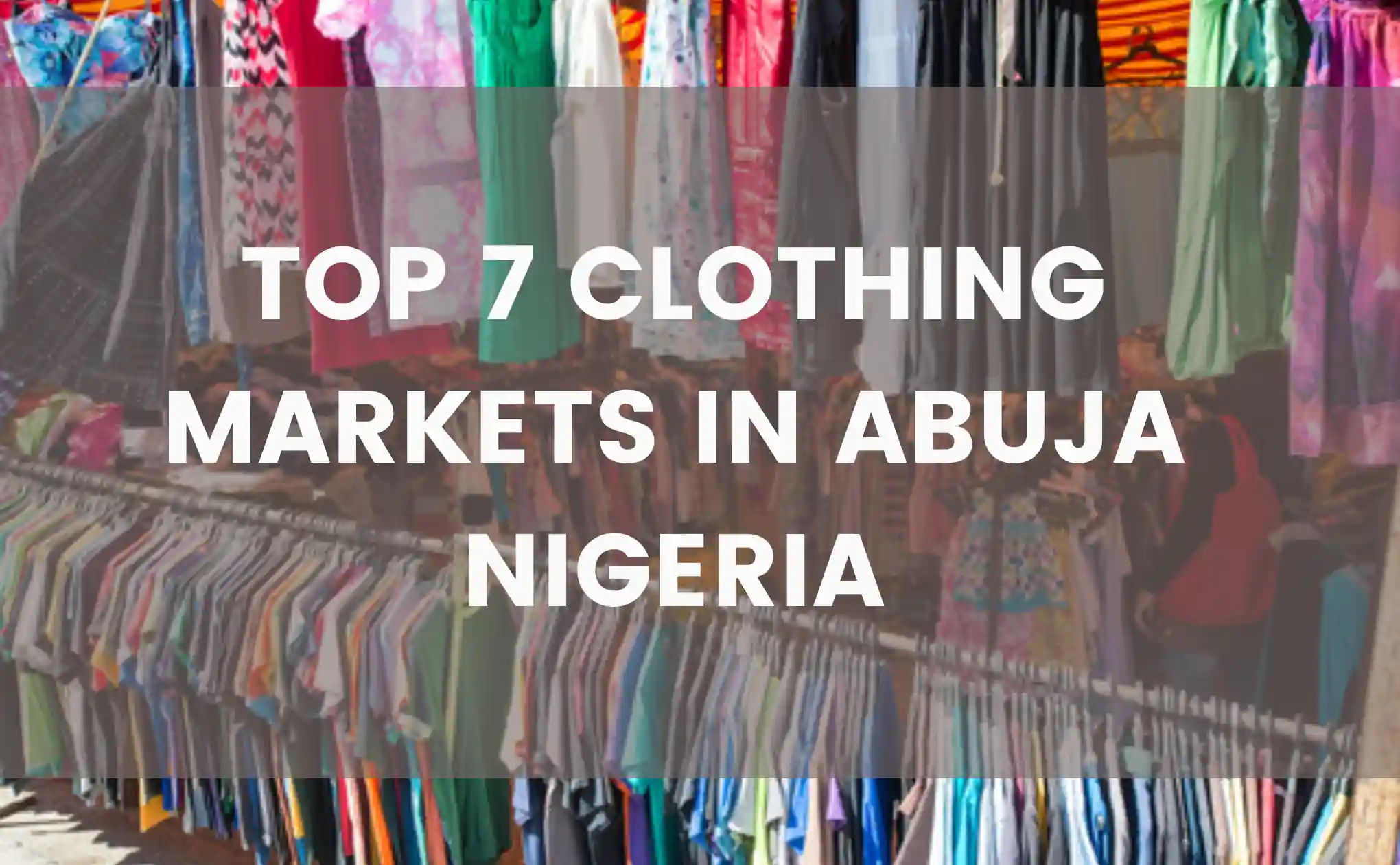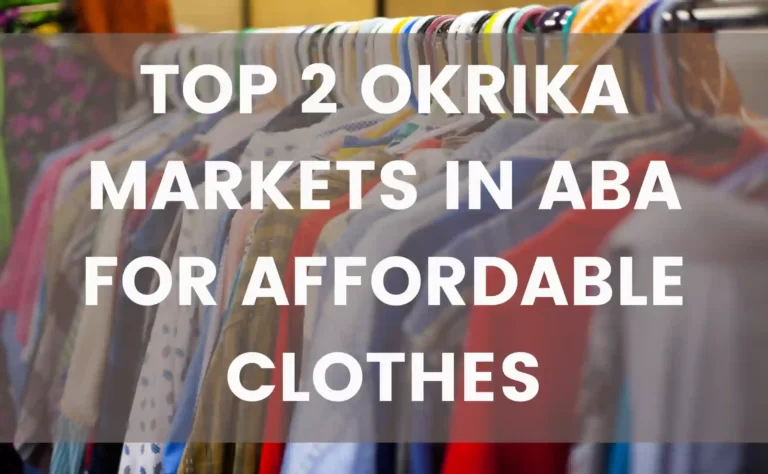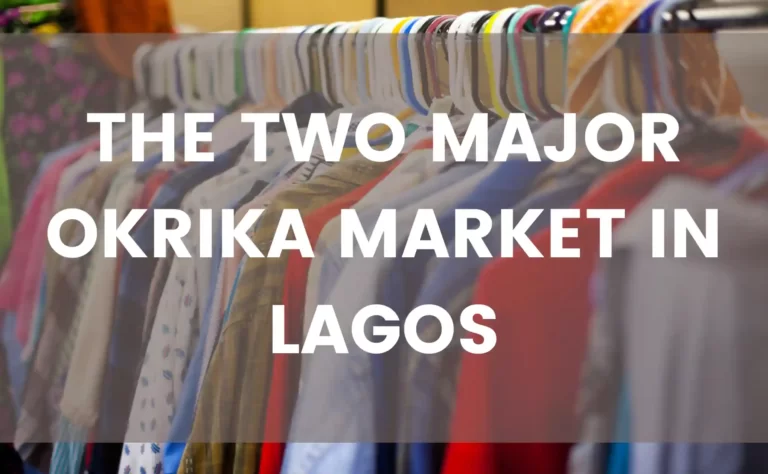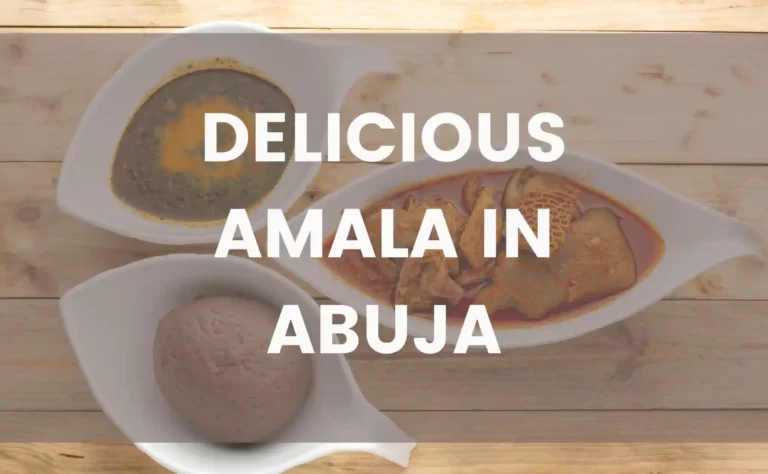Abuja is the Federal Capital Territory of Nigeria, and it has quite a number of markets and thrift stores for clothes and clothing materials.
Most residents of the FCT and even visitors from other parts of the country have visited these markets on one or several occasions to buy clothes.
The types of clothes, materials and fabrics to be bought depends largely on the financial resources, style and fashion sense of customers.
While almost every city in Abuja boasts of a market, this article will focus only on the major cloth markets in the FCT.
GARKI INTERNATIONAL MARKET
Located in the commercial district of Abuja, this market is a centre of tourist attraction, and it seems to be one of the biggest and busiest in the Capital territory.
It is also quite popular among residents of Abuja, who patronised it for the availability and quality of clothes to be found there.
Garki market is one of the most structured, and well-organised markets in the Municipal Area Council – due to recent restructuring by the city council- this makes it easier to get around the market without struggle.
While this market sells clothing materials of various qualities, it is known to especially sell imported and high priced clothes for either male or female.
There is no certain market day in Garki market as it is usually open every day of the week.
Traders of both ready made and thrift clothes within the capital, storm this market every Monday with new stock for both retail and wholesale purposes.
KARIMO MARKET
Known as one of the oldest markets in Abuja, Karimo market is located along the Gwagwa-Karimo way, off Jabi Airport road.
Karimo Market is probably Abuja’s biggest thrift market.
It is known as the clothing hub in the F.C.T, as it isn’t only available to individuals for their use, but also to persons who intend to buy bales and resell in neighbouring markets in the city.
The prices of clothes in Karimo market are unbelievably affordable.
Thrift sellers in Abuja and its environs patronise this market to buy clothes in large quantities.
Karimo market opens every day, however Tuesdays and Fridays are usually the busiest and most crowded days
The reason for Tuesday and Fridays being the busiest days is because traders across the capital come with new bales of clothes in large quantities, to sell to both retailers and wholesalers.
It opens and closes at 8am and 7pm respectively just like every other market in the FCT.
WUSE MARKET
Wuse market is another clothing hub major in the Federal Capital.
Located in zone 5 of Wuse district, this market is known for the availability of different clothing, ranging from thrift, wrappers and patterned materials, all sold at very affordable prices.
The prices of clothes are usually not the cheapest around the FCT due to high cost of shop rent and security bills, but this market boasts of quality and durable clothes of all kinds.
Like every open market in Nigeria, Wuse market is usually busy and crowded mostly on Saturdays, however it is still easily accessible unlike other open markets in the Capital.
DUSTE MARKET
Duste market is located along Kubwa expressway in Abuja, and it is also known for the availability of various types of clothes and clothing accessories.
This market is open every day of the week, but Mondays are usually the main market days and there is a certainty to get items at a cheaper rate on those days.
UTAKO MARKET
This is another popular market in the city of Abuja, and it is located around Berger Junction which is relatively in the heart of the capital.
Utako market is frequented by residents of neighbouring areas like Wuye and Wuse, who are attracted to the market for the availability of a wide range of commodities-foods, clothes and accessories.
Utako market boasts of both ready made and second hand clothes, as well as fabrics for sewing clothes and furniture.
There is often no hassle in purchasing ready made clothes, materials for sewing e.t.c.
However for thrifts – known as okrika, which are usually sold in open spaces, the customers have to deal with bad roads and fear of pickpocketing while haggling prices with the sellers.
The traders open their bales by singing to attract customers, who are always in a frenzy to get high quality and beautiful clothes. And oftentimes, it is a case of fastest fingers and the income of the buyer.
While this market is not the cheapest in the FCT, it is somewhat cheaper than the neighbouring Wuse market.
NYANYA MARKET
There are several clothing markets in Abuja, but the Nyanya Market stands out as one of the cheapest among others.
You can be able to buy beautiful clean dresses for as low as 500 naira in this market.
Nyanya market in Abuja is known for its thrift clothes and underwear for every gender and age.
Also patterned and plain fabrics for both furniture and sewing purposes are sold in this market.
Nyanya Market is open everyday of the week for buying and selling, but Wednesdays are the main market days where traders from neighboring markets bring new bales for both retail and wholesale.
MARARABA MARKET
While Mararaba is not originally a city in the FCT, residents of Abuja patronise this market due to its proximity to town, and the availability of various items for sale.
It has been said that the only thing not available for purchase in Mararaba market would not be found elsewhere. This market prides itself in thrift – okrika clothes sections.
The first thing to be seen immediately one gets to the market bus stop, is a long line of traders either hawking, or chanting jingles to attract their customers.
Thrifts of all kinds are sold along the road, while ready made dresses, Men’s and Children wears of all kinds are displayed in the shiny new plazas facing the road.
This however is not all it has to offer, as there is a dedicated section of the market known as “shopping centre” where fabrics of both Ankara, plain and beautifully patterned materials of all types are sold in large quantities.
One can say that the clothing market in Abuja is a thriving business, and one of the means of generating revenue for the nation’s capital.
Let’s wrap it up here!
Shopping for clothes in any of these Abuja markets can be very rewarding and pocket friendly, so long as you have good bargaining skills and you know the right sellers to approach.
Before you go shopping, think about how much you want to spend and what you want to buy. It’s a good idea to have some extra money, just in case.
And lastly, if you are visiting these markets with cash, make sure to keep it in a secure space in your bag. If you prefer to carry cash in your trouser pocket, make sure your pocket trouser is deep and tight enough to hold the money.







Hi Preye,
Your post is insightful. Thank you for writing.